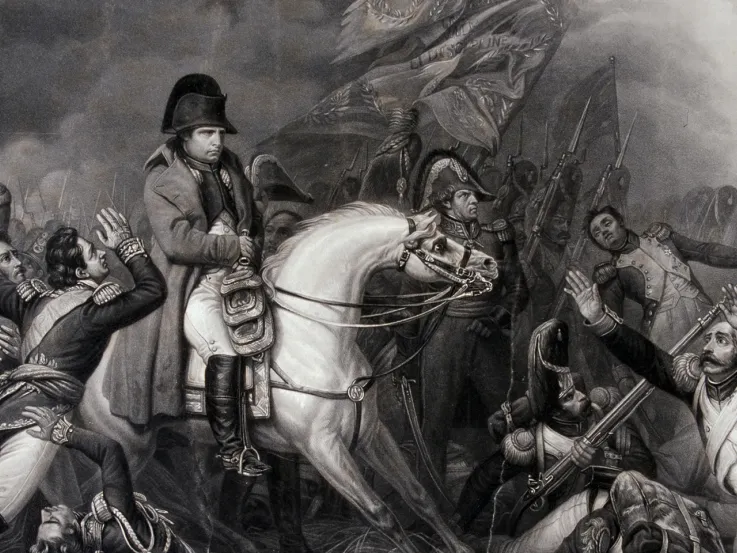The Battle of Waterloo in National Memory

The Duke of Wellington surveying the battlefield of Waterloo, c1840
Join Professor Alan Forrest as he examines how different nations have remembered and commemorated the Battle of Waterloo.
Attend in person:
- To attend this event in person, book your ticket here
- You do not need to book a general admission slot in addition to your event ticket
Watch online:
- To watch this event online, register on Crowdcast
- Get help accessing events on Crowdcast
Waterloo was the battle that ended Napoleon’s imperial ambitions and condemned him to exile on St Helena. It also ended nearly a quarter-century of war. News of the victory brought rejoicing crowds onto the streets of London and made the Duke of Wellington, an aloof aristocrat, into an unlikely national hero.
The battle was hailed at home as a victory for British arms and for a specifically British national character, which painters and novelists, sculptors and politicians sought to weave into the fabric of national identity.
Across Britain, columns were erected, squares and bridges named, and churches built to celebrate the battle, some through public subscription, others through state commissions. Waterloo became part of popular culture, too, launching an era of battlefield tourism.
Yet across Europe, it was remembered very differently. Here, it was the heroism of Napoleon’s Imperial Guard, the wounds suffered by Holland’s young Prince of Orange, or the critical role played by Blücher’s Prussian divisions that endured in the national consciousness.
In this talk, Professor Alan Forrest evaluates how the Battle of Waterloo has been remembered and commemorated by different nations, each with its own stories to tell and heroes to celebrate.
About Alan Forrest
Alan Forrest is Emeritus Professor of History at the University of York. He has published widely on the history of the French Revolution and Empire and on the history of modern warfare. His titles include ‘Napoleon’s Men: The Soldiers of the Revolution and Empire’, ‘Napoleon’ and ‘Great Battles: Waterloo’.
He is co-editor, with Matthias Middell, of ‘The Routledge Companion to the French Revolution in World History,’ and general editor of a three-volume ‘Cambridge History of the Napoleonic Wars’, to be published this year.



